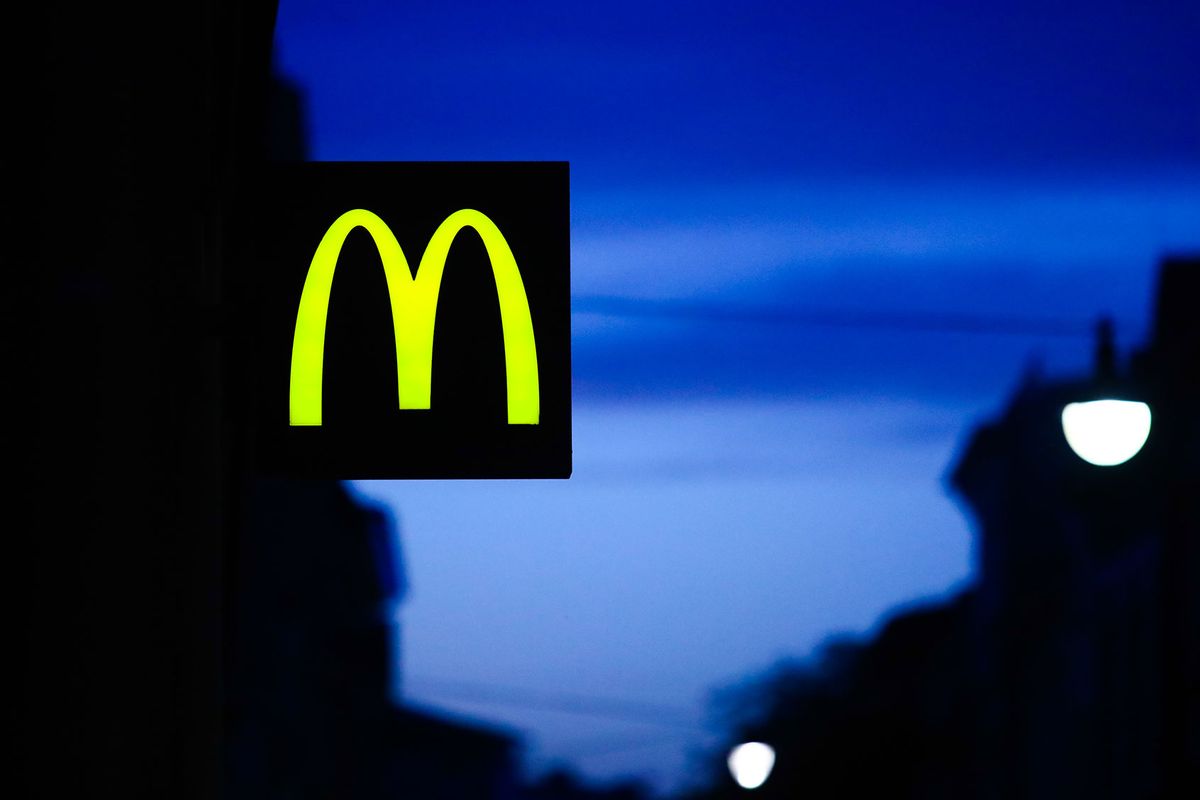On a brisk, gray December morning in Altoona, Pennsylvania, the pursuit of Luigi Mangione — the alleged killer of UnitedHealthcare CEO Brian Thompson — came to an unassuming end. Mangione, the subject of a five-day manhunt that spanned multiple states, was arrested in a McDonald’s dining room after a customer recognized him and alerted an employee, who swiftly called the police.
The arrest prompted equally swift praise from Pennsylvania Governor Josh Shapiro, who hailed the employee as a “hero,” and pointed to the moment as an example of ordinary people stepping up in extraordinary ways. But online, this declaration of heroism was quickly complicated by vehement backlish. The McDonald’s where Mangione was picked up became the subject of a review-bombing campaign, with commenters condemning the restaurant for “ratting out” the fugitive.
“This location has rats in the kitchen that will make you sick and your insurance isn’t going to cover it,” read one such review, captured by Reuters.
What emerged was not just a narrative about a high-stakes manhunt, but another illustration of the deep fissures in American society — fissures that extend to how this country sees its health care system, its workers and its justice.
Brian Thompson’s murder on Dec. 4 shocked many, not only for its audacity — he was gunned down in broad daylight outside a Manhattan hotel — but for its symbolism. As the head of UnitedHealthcare, Thompson was at the helm of one of the largest health insurers in the nation, a company whose name has become synonymous with both access and frustration. For millions of Americans, health care is as indispensable as it is frustrating, meaning that for many, the anger sparked by Thompson’s death was as much about the system he represented as the act itself.
We need your help to stay independent
Following the shooting, general vitriol towards the health care industry morphed into innumerable memes mocking the murder (alongside a chart from valuepenguin.com displaying the percentage of claim denial rates by insurance companies, with UnitedHealthcare topping the list). As Salon’s Troy Farah wrote, the “overall justification for this celebration — the New York Times described it as a ‘torrent of hate’ — lies in the widely understood fact that health care companies inflict violence on thousands of people in this country, if not millions, every single day.”
He continued:
Take the announcement this week from Anthem Blue Cross Blue Shield, which couldn’t have had better or worse timing, depending on one’s perspective. That company proposed that its health insurance plans in Connecticut, New York and Missouri would no longer cover anesthesia care if a surgery or operation extends beyond an arbitrary time limit. That seems to have outraged the American Society of Anesthesiologists, which has called on Anthem to immediately reverse this proposal.
On Thursday, Anthem did just that, but the shock remains. If that’s not violence, what is? Whether you’re in an alley or on an operating table, if someone has a knife to you and demands your money, it’s violence. Or consider the innumerable examples that aren’t just proposals but routine policy: the tidal wave of denied or delayed claims, the noose of restrictive networks, costly deductibles, prescription refusals and on and on. There is also convincing evidence this walled garden especially excludes and discriminates against people of color, queer people and women, making this systemic violence not just prevalent, but also disproportionate.
Mangione, 26, was officially charged with murder on Tuesday. Governor Shapiro’s remarks following the arrest sought to refocus attention on the broader implications of his actions.
“In America, we do not kill people in cold blood to resolve policy differences or express a viewpoint,” he said. “In some dark corners, this killer is being hailed as a hero. Hear me on this: he is no hero.”
But McDonald’s, like the health care system, is also a site of contradictions, which was on full display during the 2024 presidential election as both Donald Trump and Kamala Harris wove the chain and its workers into their respective campaigns.
It is simultaneously essential and resented, a source of sustenance and a symbol of corporate excess. The same restaurant that became a stage for heroism in Altoona was, in an instant, transformed into a lightning rod for anger and discontent. The negative reviews — many invoking rats and unclean kitchens — spoke less to the specific events in Altoona and more to a pervasive frustration. In the shadow of Thompson’s murder, that frustration has been directed at the institutions he represented and, by proxy, the place where his alleged killer was caught.
The McDonald’s in Altoona has since resumed normal operations, its place in the narrative already fading. Google has removed the review bombs, citing violations of its content policies. But the story it briefly anchored remains emblematic of larger questions. Who do we call heroes and villains, and why? What does justice look like in a society divided over its institutions? And what, if anything, can be done to mend those divisions?
For now, the answers remain elusive, much like the unity they require. But in a country where a McDonald’s can be both a sanctuary and a battleground, perhaps the search itself is revealing enough.



Shares